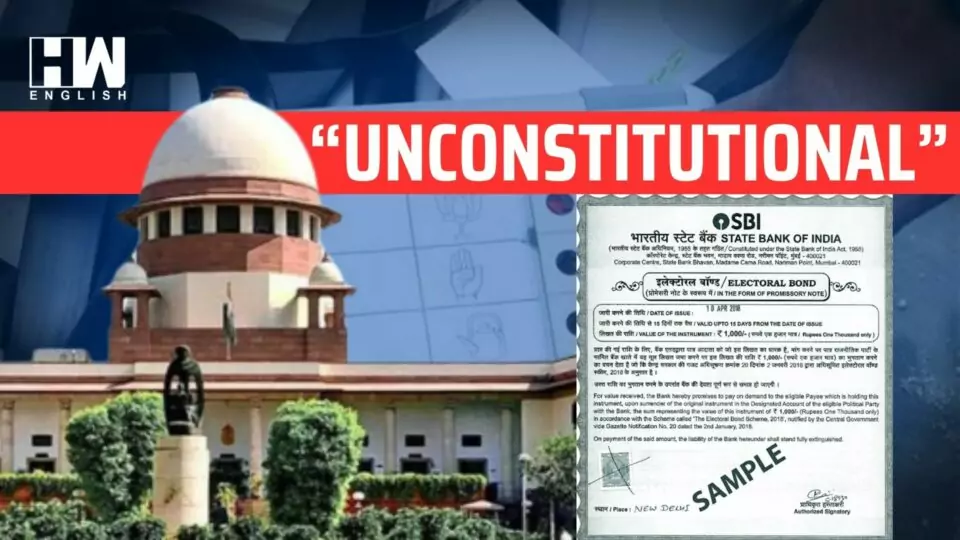In a “very significant judgment which will have a long-term effect on our electoral democracy”, the Supreme Court on Thursday unanimously struck down the electoral bonds scheme. The court held that the scheme allowing for anonymous political donations is “violative of the right to information” under the constitution.
Also Read: Supreme Court Strikes Down Electoral Bonds Scheme
A five-judge constitution bench headed by Chief Justice DY Chandrachud, comprising of Justices Sanjiv Khanna, BR Gavai, JB Pardiwala and Manoj Misra, ruled that the electoral bonds scheme must be scrapped in its entirety. “They have held that this violates the fundamental right to information of citizens to know about who is contributing this much money to political parties,” explained advocate Prashant Bhushan about the verdict.

The scheme allowed for anonymous donations to political parties. However, the court stressed that “information about funding of political parties is essential for the effective exercise of the choice of voting.” It enables voters to understand the interests that may influence parties. Hence, non-disclosure under the bonds violates Article 19(1)(a) on the right to information.
As per the verdict, “the electoral bond scheme and the impugned provisions to the extent that they infringe upon the right to information of the voter violate Article 19(1)(a) of the Constitution”.
The court directed the State Bank of India (SBI) to stop further issuance of electoral bonds immediately. The SBI must also furnish details of all bonds purchased since an interim order in April 2019 to the Election Commission of India. This covers information like “the date of purchase of each electoral bond, the name of the purchaser of the bond and the denomination of the electoral bond purchased.”
Additionally, SBI has been asked to share information with the ECI on “the political parties which have received contributions through electoral bonds” since April 2019. This should mention relevant details like “the date of encashment and the denomination of electoral bond” for amounts received by parties via the bonds.
SBI has three weeks to compile and submit this information. Thereafter, the ECI will publish the details “to make it available in the public domain as a measure of transparency.”
Thus, in a strong rebuff to the incumbent government, the apex court has enforced transparency in political funding. Its unanimous ruling emphasizes the citizens’ right to know the interests that back electoral candidates and parties. By scraping anonymous donations, it aims to uphold free and fair democratic choices based on informed decisions.
As an independent media platform, we do not take advertisements from governments and corporate houses. It is you, our readers, who have supported us on our journey to do honest and unbiased journalism. Please contribute, so that we can continue to do the same in future.

